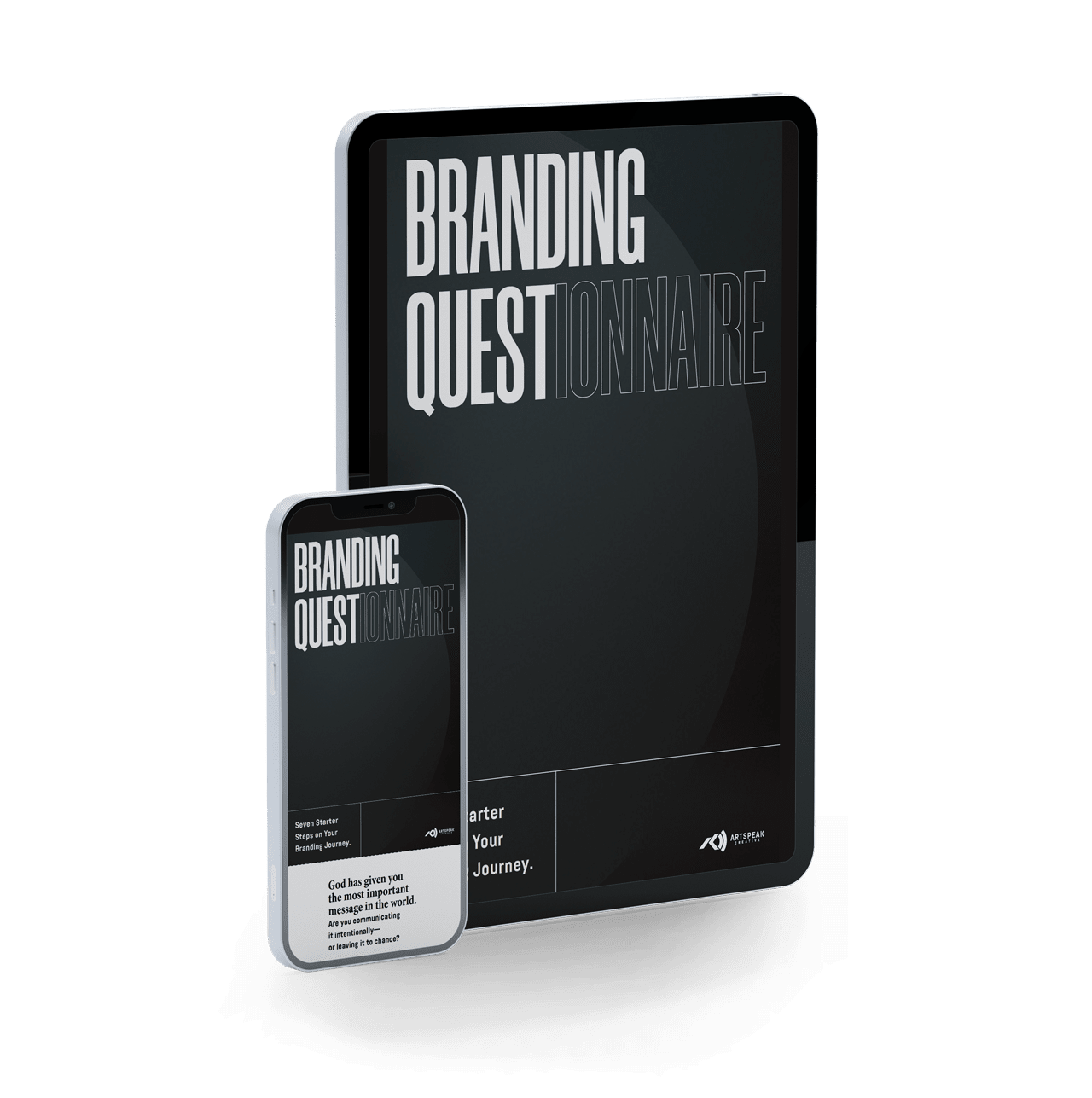Jason Bowman:
Sundays are for the lost. Recently we did a post that said Sundays are for the lost. Are they? It’s created some great dialogue within the ArtSpeak Team on whether or not that is a true statement or not for everyone. Are Sundays for churches for the lost?
Kirk Hadden:
This is not a new question even. If you look back through church history, there’s been … Let’s just start on on one model that’s been perhaps more common in the US in the last hundred years where the Sunday morning is for the believer, it’s for discipleship. It’s for going deep and building strong believers, so that they can go out into their community, and that’s where evangelism happens.
Jason Bowman:
You’ll see that reflected on some church reader boards, right? It’ll have what denomination the church is, what view of scripture they have, when they think Jesus is coming back. They’ll have all of these claims on the sign, and really what that is telling the community intentionally or not is if you already believe this way, then you’re welcome to come on in. I think in large that is what has been communicated to the culture is “This building, these services are for those who believe like we believe.”
Kirk Hadden:
Then modern day comes. There is a new model that you see a lot of in the church world today where Sundays are for the lost. Some will say this explicitly, “That’s why we do Sundays, it’s for the lost.” In that model you take that Sunday experience and you make sure that everything in it makes sense that someone who has not been churched, who does not know God can walk in and understand everything that’s happening, that the message, the experience is targeted to that person. That’s a very different view of how evangelism happens in the church.
Jason Bowman:
In talking to some friends both on our team and leaders of even church planting movements in the country over this last week, I’m finding that there’s almost a resurgence to, “Hey, the gathering is going to be for the believers so that we can empower a missional community out into the world.” That’s where we’ll engage with those who are outside of the community.
Kirk Hadden:
I think there you see some reasons for that push. In fact, I remember that being very popular when I was in seminary. It was kind of a push away from big church, looking at a big church and all of the production and all of the lights and smokes or you know, whatever, whatever was going on that was viewed as being this is, this is church being done for the lost, there was different terms for that seeker sensitive, but then so a push away from that like, “No, no, no, let’s dig in deep to a community. Let’s, let’s get rid of all the extras, and let’s exhibit authentic Christianity in the context of community without all the fluff, without all the noise.” I think there’s a lot of appeal in that, especially for those of us who maybe were very involved in big church, and got a little tired of all the production, and got a little hungry for something that maybe felt a little more natural, a little more authentic-
Jason Bowman:
Authentic.
Kirk Hadden:
A little more real.
Jason Bowman: Right. I wonder, the very first time I ever interviewed for a lead pastor role, the team, that board that was interviewing me, they, they felt this tension and they asked me that question. They said, here’s what they asked. “Are you seeker-friendly or are you Spirit-led?” My response was, “I find that the Spirit leads me to be friendly because why would the Spirit not want me to be friendly?” I guess what I’m trying to say is “Does it have to be,” legitimate question. “Does it have to be either-or?” I’ve, I feel like any time Jesus was presented with a binary option, is it this or is it that, he was a master at coming up with the third option that always kind of convicted both parties. I wonder if he might have a similar third option for us today.
Kirk Hadden:
Obviously, there’s a couple things that churches should be doing, right? The church should be building disciples. We’re called to go make disciples. That sounds like a bigger conversation, a bigger process than just evangelism, that yes, committing to Christ is like step one, right, maybe, right?
Jason Bowman:
A discipleship that ignores evangelism wouldn’t even be discipleship, right?
Kirk Hadden:
Yeah, you’ve got to start somewhere with the discipleship process. Both of those things need to happen. The question is, what strategy is gonna work for you in your context, in your culture? I mean, part of me wants to say, “Well, we’re asking about Sunday. We’re asking about a day of the week. Is that the real question?”
Jason Bowman:
Well, I don’t know that it is because, or maybe it is, I don’t know. For me as I’ve been processing this, the statement that I love is the church exists for the lost, not just Sundays, but anytime we gather. Why are we even here? Jesus came to seek and to save that which is lost. He’s patient towards us longing that none should perish. What is he up to today? He’s wanting to build bridges. He’s wanting to turn on lights. He’s wanting to change some lives in our communities. Anybody who’s on that mission, whether it’s a Sunday or a Monday or Tuesday, or whether it’s a gathering to pray for those who are going to go out on that mission too, I feel like you’ve got to respond to that mission if you’re going to line up with that biblical discipleship.
Kirk Hadden:
I think the question on how you implement this may come down to a scale of what level of knowledge, what level of resistance is there in your community to the Gospel message? If you’re in a context where there is kind of a baseline understanding of what the principles of Christianity are, or even a vague idea of like, “Yeah, I probably should be in church,” you may be able to invite those people straight into a Sunday morning experience that calls them to make a decision to, calls them to make a commitment, even if they’ve not been to church in 30 years. There might be other contexts. Historically you can see this. Back before Europe was a Christian region, the way that Christianity spread northward through Pagan Europe was that monks would travel into untouched territory and start a monastery, a monastery, where the monks would go and do monk things that made no sense to the pagans that lived in that area, Pagans, because they literally were pagans. How they reached them, they’d go out, they’d teach them, “Hey, have you learned about this new farming technique? Let me teach you about a better way to make that iron. Let me teach you how to read. Oh and here’s some books on how to do that.” Through that hard ground work of going out into the community, and eventually some of those are like, “Wow, I like what you’ve got you, you guys know stuff I didn’t know. You guys have helped me. What is it that you’re teaching?” That’s when they started calling them in. I think there’s a place for that model.
Jason Bowman:
There’s something about what you just said that reminds me, I was talking to a church plant director in the Pacific Northwest earlier today. He said that he is recommending that a lot of the church planters do start bi-vocational, which is different than the launch large, be attractional, you know, full-time in ministry because I get it, man, when you’re pastoring the church, it is a busy, busy enterprise. He felt like having the experience of being bi-vocational in your community is going to give you touch points. It’s going to give you clarity to their issues. It’s going to give you wisdom. Well, his words were “It’s going to make you not weird.” You’re gonna actually be a normal person in the community. You’re gonna be able to speak their language, add real value to help them in their lives and, and who knows what comes out of that. It’s just crazy to see how that may be. That lines up with what monks were doing hundreds and hundreds of years ago in Europe. I don’t know if there is just one way, and I don’t know that there ever should be.
Kirk Hadden:
I mean I think bottom line you’ve got to make disciples, and you’ve got to evangelize people. Honestly, I think you could probably do a lot of both in your Sunday morning experience, or Wednesday evening or Saturday afternoon. Wherever you do your service, your gathering, you could probably do some evangelism and some discipleship at the same time. You may have to do some heavy duty discipleship in a small group context. You may have to do some evangelism in a small group context. You’re going to have to read your broader context to know what is gonna work in your area.
Jason Bowman:
I think I would be passionate about the idea of both at the same time because sometimes I feel like the way we’ve done church, not just me but me to everybody, sometimes it empowers a language that’s so radically different. There’s this discipleship language that’s super deep, and it’s got big words and new vocabulary and just only the insiders know these deep truths. Then you have evangelism that’s completely separate from that. What we’ve done is when we teach that way, we’ve empowered our people who are learning that way and they might be growing, they might be bearing fruit from that, but then we’re not teaching them how to talk like the rest of the world, like their friends, like their neighbors, like the, the other parents on the sports team. We’re not teaching them how to actually use the language of the day. That’s where I do love well even if we’re doing a service on the weekend that is calling people to make a decision or grow deeper, and so therefore it might be for the believer, but doing it in a way that the language is going to make sense for anyone. I might just be saying that personally, because I first walked into a church, I was, I was, you know, 20, 21 years old and I didn’t know anything. I read the bullets, and I still have no idea what was going on in the church because all the abbreviations and all this insider language, I had no idea what was going on. The churches that we see growing are putting that brand new person, even if they’re not Christian, they’re using them as a filter to think through when designing all of their communication pieces, and I love that.
Kirk Hadden: You look at the model of the New Testament, of Jesus, of the early apostles, they spoke in Koine Greek, which was everyday Greek. They didn’t use, which would have been the natural option for something you would have to impress people with and be like, “Yes, this is an official document,” you would have used what we now call classical Greek. They didn’t, they used street Greek because they wanted anybody and everybody to understand. Whether or not we’re treating experience as specifically targeted toward the lost or to the believer, we can probably figure out how to communicate that in language that everybody has the best opportunity to understand.
Jason Bowman:
Oh, I love that, that is my favorite conversation. I love how that was applied by Church of the Highlands in Birmingham. Down there for some training a year or more ago, and they had recently retooled all of their materials, not just their advertising or their Sunday service flow, but literally all of their discipleship materials. They had actually hired a group of non-Christians, and given them their discipleship materials and said, “What do you think we’re trying to say?” They realized what those materials were leading those people to think was not what they were hoping. They rewrote it so that even though it was actually material to take a believer deeper and empower them more in their own lives, they wanted to make sure that everybody would understand what was being communicated. I love that.
Kirk Hadden:
Yeah. I love that idea too. If you have decided that your experience is for the lost, what if you went out and found an unchurched person and said, “Hey look, I’m not trying to just buy your salvation. How about I just give you 100 bucks to come experience our experience and give us a full review? Tell us what you thought” just to see are you connecting the way you thought or are you being confusing and weird to people.
Jason Bowman:
Another experience that I had was at a growing multisite church, probably the one experience that probably epitomized really putting the lost first in that, and I say the lost, I don’t know, just the unchurched, those that were outside of the church, is they actually in the service, they flip flopped and they went message first and then the music and worship was in response to the message. I attended, I was a visitor. I’m like, “Don’t they know I’m an evangelical. I need three worship songs before I’m ready to hear the preaching? Don’t they know that’s what I need this weekend?” Then what I saw happen was, “Hey, if you’re ready to become and begin this, we’ve got people that can lead you through that.” People were responding all over the room, and they said, “Now all of us, all of us, but whether you’re just responding for the first time, or maybe it’s been the first time today and the first time in a long time, or you’re dealing with a part of this message, let’s now take that to God in a time of prayer and worship.” I found that it actually helped me worship and grow more than I even anticipated coming into it because boy, they really messed with my paradigm for a Sunday gathering. Here’s the deal. Those are anecdotes, those are a couple of stories. The principle here, we couldn’t possibly get to the bottom of in one video is Sunday, should Sunday at church be for the lost? Is the church for the lost? Is it for the unchurched, church for the unchurched? We would love to know what’s working where you’re at, what are you doing to engage your community? What are you doing on mission? Now I know a deeper conversation like this can really bring out the militant in us, and so that will not be tolerated. We are really just checking … because I don’t think there’s one way. In fact, I do think Jesus probably has a third option for us. If maybe you’ve dialed in on it, maybe there’s a ministry, maybe there’s something that a community, a small group of outreach, whatever it is that you’re doing and you’re seeing it, engage those that think they’re far from God, but they’re just unchurched, and they’re coming and they’re experiencing and they’re becoming a part, we’d love to hear it. You can message us, or post your comments in here, we would just love to help facilitate a conversation that talks about and wrestles with that tension about how do we reach the most amount of people in our generation.
Kirk Hadden:
So true. The church has to adapt to reach as many people as we can, and so don’t hoard it to yourself. Let us know what’s going on.
Jason Bowman:
Thank you.



